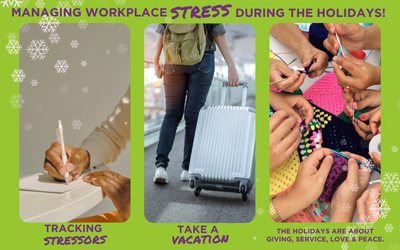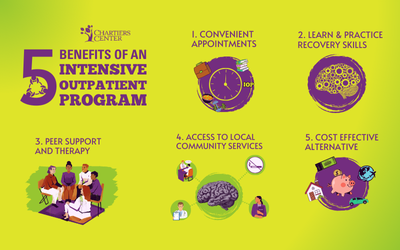The holidays are a roller coaster of memories. Even though we’re in the present, we’re anxious about future holiday events, and we revisit past experiences. Most of us, most of the time, go through an array of emotions; from happy/joyous to sad/lonely when we think of loved ones. We are happy and joyful when we think about the upcoming holiday and getting to be with our loved ones, sharing precious moments. Or we may be separated from a loved one who lives in another country, or they’re away in the military, or they’re deceased, which makes us experience sadness or loneliness.
Many times, these feelings can be triggered through events that remind us of our loved ones – songs, smells, or seeing items that can “take us back” to a time and place. We can also go through all of these feelings at once; making us feel confused about our emotional state and wonder if we are emotionally healthy. These emotional experiences are many times associated with what we commonly refer to as “grief.”
What is grief? That’s a complicated question to answer. Kubler-Ross coined the term “grief” and defined it to have stages, and when you’re within one of these, you’re said to be “grieving.”
- Stage 1: Denial
- Stage 2: Anger
- Stage 3: Bargaining
- Stage 4: Depression
- Stage 5: Acceptance
For additional details, look to Google or YouTube and search “Stages of Grief.”
It would benefit one to look at Ross’ stages more as “states” of grief as opposed to “stages,” since grieving is not necessarily a linear process leading to acceptance. You may feel anger, then go right to acceptance. Or you may never feel anger and remain depressed. What we need to know most about the grieving process is that it is part of the normal human experience. It does not abide by clinical checkboxes and then work its way through our emotional process in an orderly fashion. The emotional experiences associated with grief are random.
There are times when we need help with grieving. There are plenty of resources; the Employee Assistance Program (EAP), professional counsel, and many religious organizations are able to provide help. A good online resource is here.
Sometimes we experience trauma during the holidays, and these holidays trigger thoughts and emotions associated with said trauma. Those who have experienced trauma might want to seek out professional help, and at Chartiers, our EAP is a great starting point for doing so. Though it is 100% confidential, if you’re uncomfortable reaching out to the Employee Assistance Program, Google is also an excellent resource.
Alternatively, if you’re not ready to seek out professional help, or simply don’t feel you’re at that point, some people find solace in donating to charitable organizations, be they for people or animals. Or you can engage in activities such as going to the gym, taking a walk around the mall, the woods to enjoy nature, or just go somewhere to people watch (a coffee shop in a busy area is a great place) or otherwise engaging in fun activities are ways to help minimize some of the depression, loneliness, and anger we can experience.
I wish everyone the best over this holiday. Hopefully you will spend time – quality time, with quality people, get the opportunity to overindulge a little bit while being healthy, and rest on your couch uninterrupted.
 Article written by Bill Wadsworth, MBA, MSW, LSW, Director of our Long Term Structure Residence (LTSR) program. If you or anyone you know is ready to seek professional mental health services, please contact our intake team today.
Article written by Bill Wadsworth, MBA, MSW, LSW, Director of our Long Term Structure Residence (LTSR) program. If you or anyone you know is ready to seek professional mental health services, please contact our intake team today.



